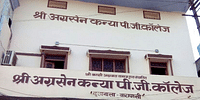MA Ancient History: Course Structure
The curriculum of MA Ancient History is set in such a way that enhances the knowledge of students in an analytical way and gives them field practice. Various workshops are conducted along with assignments. The course structure will make sure to increase the level of creativity, subjectivity, and practicality.
Scheme of Assessment
Institutions will evaluate a student internally and externally. Internal assessment includes class representation, workshops, and assignments. Internal assessment usually forms 40% of the total marks and the rest of the 60% marks depend upon the end semester exams. At the end of the course, students will have to submit a dissertation or a thesis.
MA Ancient History: Syllabus
The syllabus includes all the aspects that will make a person adaptable to loads of data. Some are core subjects while others are electives, one has to choose from the electives and pass with a minimum set of marks according to the University.
The subjects in the curriculum, which are common to all universities are:
| Subjects | Topics Covered | Description |
|---|---|---|
| Outlines of Indian History |
|
This subject teaches the entire history in a crux be it geographically, rulers, the evolution of different economies and periodization of Indian History. |
| Studies in Indian Archaeology |
|
It introduces to the basics of Archaeology and provides the aims and ideas of Archaeology connecting it with natural sciences and physical sciences |
| Cultural Heritage |
|
It teaches about the foundation of society’s principles, women’s role and their position in society. |
| Epigraph and Palaeography |
|
It teaches the historical and cultural importance of various ancient inscriptions and their value, also different scripts are taught in order to understand the historical contexts of Ancient India |
| History of Arts and Architecture in India |
|
It shows how in Ancient times, Indians used to make scripture and Art forms about the Vedic paintings and pre-historic Arts. |
| Ancient Civilizations of India |
|
It shows the political, social and economies of various countries. |
| Numismatics |
|
It shows how coins were minted in the early period and what all was made on them. How different rulers used metals as coins and coins as the sources of Indian history |
| Indian Religions |
|
It shows the origin and evolution of all the religions and how it affected the Indian Culture. |
| Ancient Indian Polity |
|
It tells about the local governments, the spread of Kingship in India and their different laws imposed. It throws lights on Women and children rights as well along with Diplomacy. |
| Indian Philosophy |
|
It shares the aims, functions, and scope of philosophy in India, tenets and teachings of religions. |
| History of India up to 650 AD |
|
It tells about the sources of Ancient history from the start and introduction of Nagas, Somas. |
| Capitalism and Colonialism 650 AD to 1206 AD |
|
It tells the position of women in that era, their education, and also discusses economies and social groups of Rajput’s, Kakatiyas |
| State in India |
|
It shows the polity of the era and formation of states. It also teaches the administration processes and their functions. |
| Indian Temple Architecture |
|
It tells about the architecture of Indian temples of Hindus and Buddhists and style art forms of Ajanta and Bagh. It also informs about the origin of image worship in India. |

![Jawaharlal Nehru University - [JNU]](https://static.zollege.in/public/college_data/images/appImage/25461_JNU.jpg?tr=h-100,w-200,c-force)
![Annamalai University - [AU]](https://static.zollege.in/public/college_data/images/appImage/25868_ANNAMALAIU_APP.jpg?tr=h-100,w-200,c-force)
![Ewing Christian College - [ECC]](https://static.zollege.in/public/college_data/images/appImage/1268_ECC_APP.jpg?tr=h-100,w-200,c-force)
![DAV College - [DAV]](https://static.zollege.in/public/college_data/images/appImage/55100_Untitled.png?tr=h-100,w-200,c-force)
![Deen Dayal Upadhyaya Gorakhpur University - [DDU]](https://static.zollege.in/public/college_data/images/appImage/1505106168cover.jpg?tr=h-100,w-200,c-force)

![Heeralal Ramniwas Post Graduate College- [HRPGDC]](https://static.zollege.in/public/college_data/images/appImage/1499841274DSC1096.png?tr=h-100,w-200,c-force)
![Karnatak University - [KU]](https://static.zollege.in/public/college_data/images/appImage/25610_KU_NEW.jpg?tr=h-100,w-200,c-force)